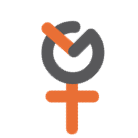Bergische Universität Wuppertal
Homepage: www.gleichstellung.uni-wuppertal.de
Gender Equality Plan: PDF
The University of Wuppertal was established in 1972 as part of the North Rhine-Westphalian (NRW) drive to create a practically oriented (or 'comprehensive') higher education sector. Already existing HE institutions in the region, like the Schools of Engineering, Industrial Art, and Education, were assimilated into the new format and expanded to incorporate new departments. In 2003 the so-called 'Comprehensive University of Wuppertal' was restyled simply 'University of Wuppertal'. The initial 3473 students by now numbered 13.800. A main focus of degree programs remained on the traditional Wuppertal subjects of engineering and science on the one hand and art and design on the other, with economics and the humanities given new prominence and state examinations for future school teachers offered in a wide variety of subjects. BUW will (jointly with Linköping University) be responsible for work package 3 ‘implementation process management and co-lead work package 4 ‘monitoring action plans’. The work in WP3 includes e.g. the consultancy and reflection of the implementation process in each GAIA institution. Apart from this, BUW will be actively involved in the majority of work packages. Jennifer Dahmen will be work package leader and member of the Executive Committee and responsible for the organization and conduction of the project work at BUW. Susanne Achterberg will be part of the BUW team as Team Leader, which is completed by the three transfer agents Christel Hornstein, Iris Koall and Hans-Werner Treichel.
- Dahmen, Jennifer (2010). “’Engineering is a men’s business!’ – Identities of Women in Engineering”. . In: Anne-Sophie Godfroy-Genin (ed.). Women in Engineering and Technology Research, Proceedings of the PROMETEA international conference, October 26-27 2007. Zürich: Lit Verlag.
- Dahmen, Jennifer (2009). „Von rosa Elefantinnen und grauen Mäusen – Ingenieurinnen im Berufsleben“ [Of pink elephants and grey mice – Women engineers in job life]. In: Anita Thaler & Christine Wächter: Geschlechtergerechtigkeit in Technischen Hochschulen - Theoretische Implikationen und Erfahrungen aus Deutschland, Österreich und Schweiz. München, Wien: Profil Verlag.
- Dahmen, Jennifer (2006): “I like to study in a male domain – Female students in engineering majors”. In: Proceedings of 34th Annual Sefi Conference, Uppsala, Sweden, 28th June – 1st July 2006 (CD)
- Sagebiel, Felizitas & Dahmen, Jennifer (2006). “Masculinities in Organisational Cultures in Engineering Education in Europe. Results of European project WomEng.” In: European Journal of Engineering Education, 31 (1), pp. 5-14.
- Achterberg, Susanne (2002): Wege in die Wissenschaft –Privilegierte Zeit der Unsicherheit. Analyse der Situation der Habilitierenden an der Bergischen Universität Wuppertal. [Paths into science – privileged time of uncertainty. Analysis of the situation of postgraduate scientists at the University of Wuppertal]. In: Magazin, WS 2002/03, 10-11.
- Achterberg, Susanne (2005): Wege in die Wissenschaft – Analyse und Überwindung des geschlechtsspezifisch geteilten Arbeitsmarktes Hochschule. [Paths into science - Analysis and overcoming the gender-divided labour market university] In:
- http://www.gleichstellung.uni-wuppertal.de/wege_wiss.html.
- Hornstein Christel / Bauhus, Andrea (2009): Genderkonzept der Bergischen Universität Wuppertal [Gender concept of the University of Wuppertal]. Download: http://www.gleichstellung.uni-wuppertal.de/PDF/Genderkonzept-rzIII.pdf [21.12.2009]
- Koall, Iris (2001): Managing Gender & Diversity – von der Homogenität zur Heterogenität in der Organisation der Unternehmung [Managing Gender & Diversity – from homogenity to heterogenity in organisations and companies], LIT Verlag, Münster.



